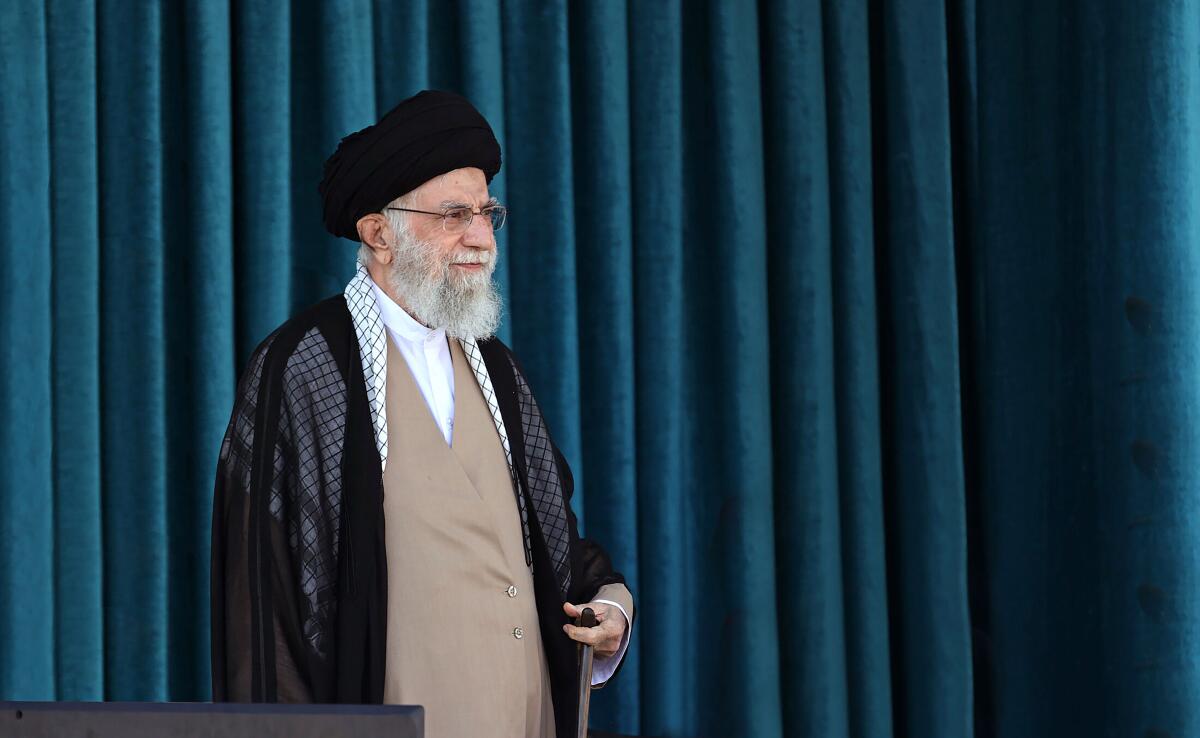Iran launches air strikes toward Israel in retaliatory move, Israel says
Israel-Hamas
Tracy Wilkinson April 13, 2024
Retaliating for a deadly attack earlier this month, Iran Saturday launched “dozens” of drones toward Israel, the Israeli military said.
A military response from Israel is now expected, although it was unclear how robust it would be. It could take several hours for the drones to reach their intended targets, the identity of which is still unclear. Attacks from Iranian soil to Israel proper would represent a major escalation in regional warfare.
President Biden cut short his weekend in Delaware and rushed back to the White House, where he was joined by a team of national security advisors who had been bracing for violent reprisal after April 1 airstrikes blamed on Israel killed seven senior Iranian officials at an Iranian diplomatic mission in Syria.
Rear Adm. Daniel Hagari, a spokesman for the Israel Defense Force, reported the launch of Iranian drones and said Israel was already on high security alert, canceling school and large public gatherings until further notice.
“Iran has begun an airborne attack against Israel,” White House national security spokeswoman Adrienne Watson said.
Iran’s operation, which Tehran was threatening for days,
Direct Israel-Iran military actions would be a game-changer, U.S. officials said.
“We are in totally uncharted territory,” Mairav Zonszein, Middle East analyst with the International Crisis Group, said on X, the platform formerly known as Twitter.
Biden administration officials, along with counterparts from several Arab and European nations, in recent days had been urging Iran to show restraint even as Tehran’s heated rhetoric rose and preparations for an attack were clearly underway.
U.S. officials also urged Israel to calibrate any response commensurate
commiserate
with Iran’s action.
((WHERE THE ATTACK FALLS ON THE SPECTRUM OF CALCULATION))Ahead of the attack, President Biden vowed to help defend Israel against Iran. He dispatched the senior U.S. military commander in charge of the Middle East region, Gen. Erik Kurilla, to Israel for consultations.
But a wider conflict, in a region already reeling from Israel’s devastating war in Gaza, will further
stymy stymie
Washington’s diplomatic efforts aimed at easing tension and freeing hostages held by the Hamas militant group, including several U.S. citizens.
It could also undermine Biden’s domestic support from war-weary voters just under seven months ahead of the U.S. presidential election.
Conventional wisdom has maintained that Iran does not want a war with the United States. Israel’s reaction – and that aof the U.S, – would depend on whether Iran attacks from Iranian soil, or uses any of its many proxies in the region, such as Hezbollah in Lebanon and pro-Iranian militias in Iraq.





